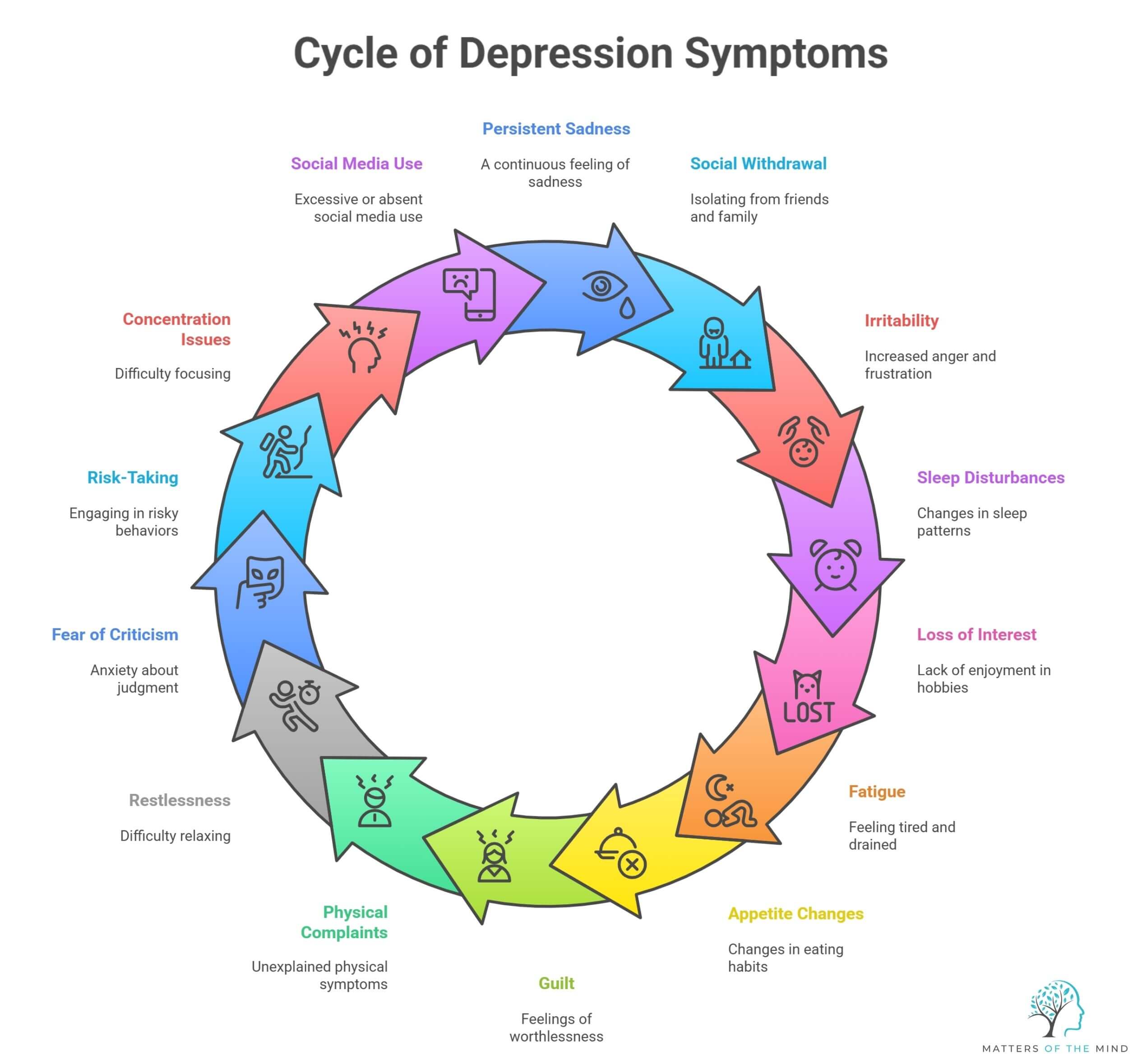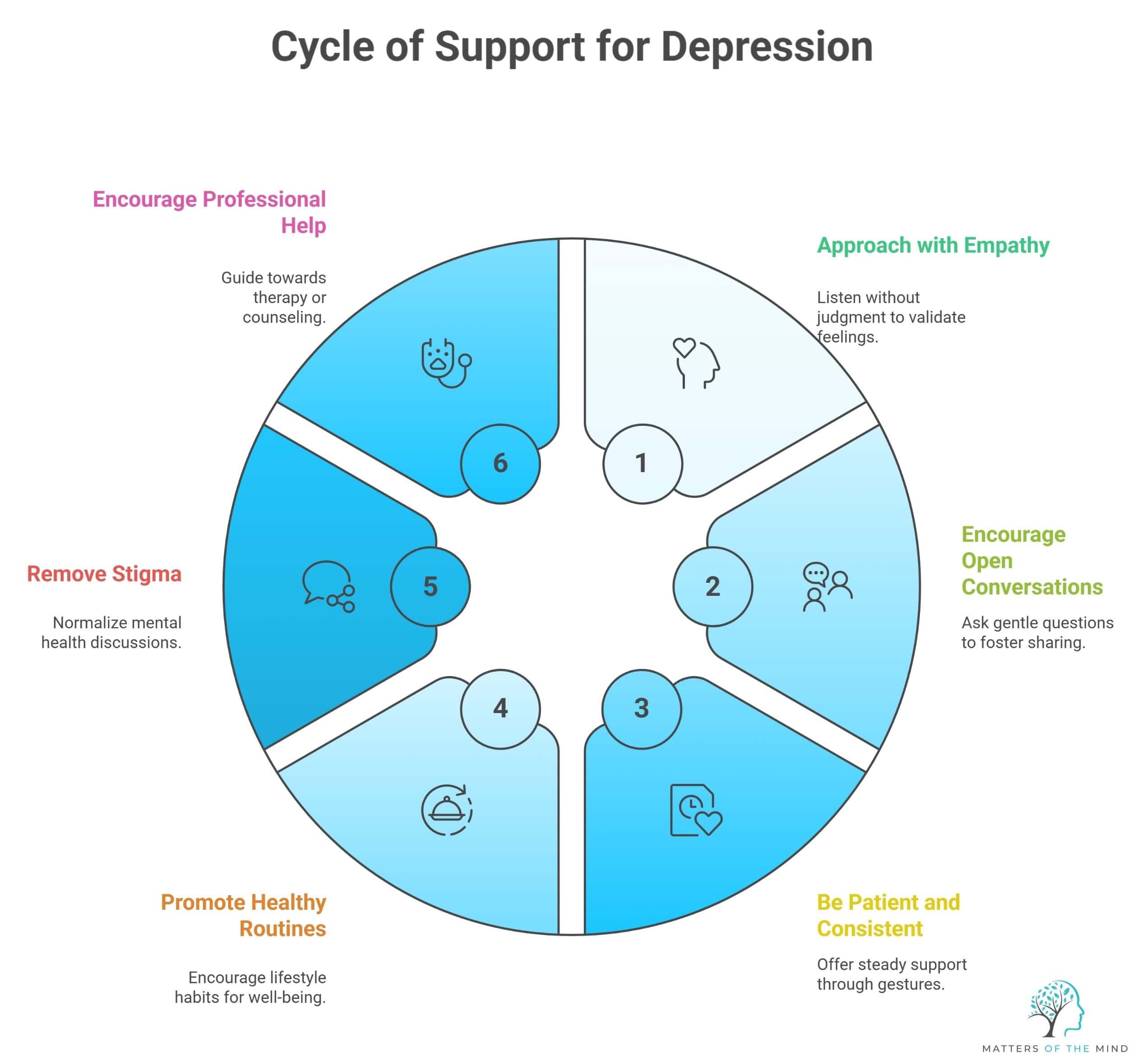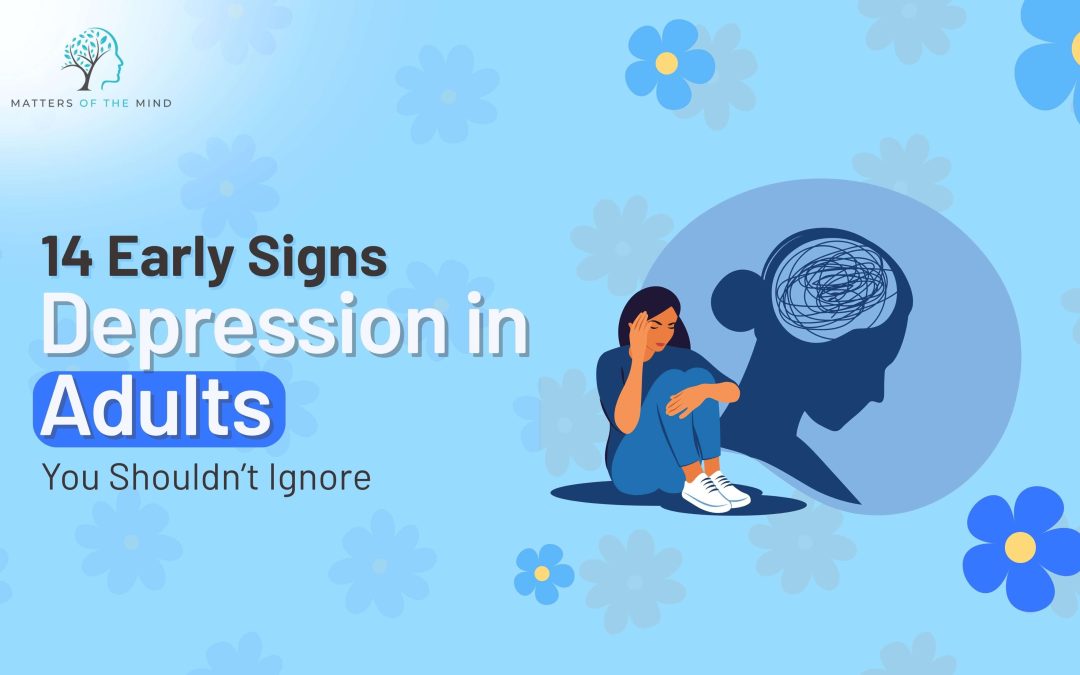Approximately 1 in 5 adults in England experience a common mental health condition each year. This includes conditions such as anxiety, depression, and mixed anxiety and depression.

Signs of Depression in Adults

1. Persistent sadness
2. Withdraw from friends and family
3. Irritability and anger
4. Change in sleep patterns
5. Loss of interest in hobbies
6. Low energy and fatigue
7. Appetite or weight changes
8. Feeling of guilt or worthlessness
Excessive self-blame, low self-esteem, or expressing that they “don’t matter” are strong indicators of internal struggle.
9. Frequent unexplained physical complaints
10. Restlessness or difficulty relaxing
11. Fear of criticism or rejection
12. Risk-taking behaviour
13. Difficulty concentrating
14. Social media withdrawal or overuse
Understanding Depression in Adults
How to Support a Person Showing These Signs

1. Approach with empathy
2. Encourage open conversations
3. Be patient and consistent
4. Promote healthy routines
5. Remove the stigma around mental health
Normalise talking about mental health in homes and classrooms. The less shame an individual feels, the more likely they are to seek help.
6. Encourage professional help
Final Thoughts
Depression in adults is not always easy to recognise, but paying attention to the early signs can make a world of difference. What may appear as simple moodiness or changes in behaviour could be an early sign of help. By staying observant, fostering open conversations, and encouraging timely support, we can give individuals the chance to heal and thrive.
For compassionate, professional support, you can connect with Dr Kavita Deepak-Knights, a clinical psychologist based in Windsor, Berkshire, who offers dedicated sessions to help adults and their families navigate mental health challenges.



